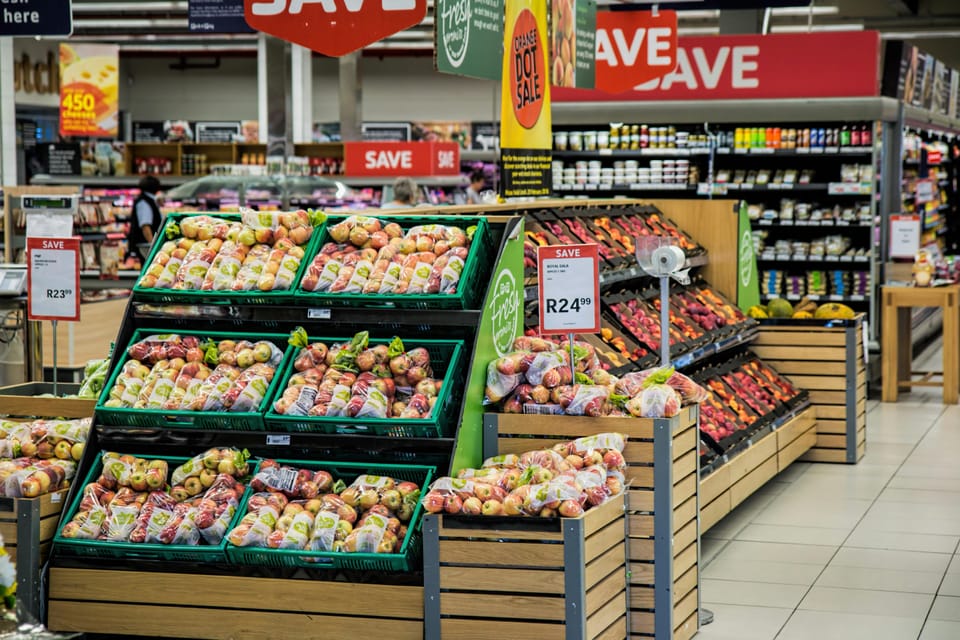“Dynamic pricing has emerged as a potential solution to reduce food waste and enhance profitability in supermarkets, as suggested by pricing experts. A recent report on NPR's "Planet Money" podcast explored the feasibility of implementing dynamic pricing models in U.S. grocery stores, with a focus on promoting the rapid sale of nearing-expiration products.
While dynamic pricing has been widely embraced in sectors like hospitality and transportation, its adoption in supermarkets has been limited.
Experts believe that dynamic pricing, especially for perishable items nearing expiration, could significantly reduce food waste and increase supermarket margins. The challenges in implementing dynamic pricing include labor costs associated with physically replacing price tags, which could be mitigated with digital shelf tags. Additionally, accurate real-time inventory measurements are crucial for successful implementation.
Despite these challenges, the potential benefits of dynamic pricing for supermarkets are substantial, signaling a possible shift in pricing strategies to optimize resource utilization and reduce waste.”
Hamstra, Mark. 2024, March 7. Is dynamic pricing feasible within supermarkets? Supermarket News. https://www.supermarketnews.com/technology/dynamic-pricing-feasible-within-supermarkets
In today's market, the concept of dynamic pricing has been making waves, but not always for the reasons you might expect. Though it is often associated with surge pricing, dynamic pricing has a hidden potential that is often overlooked – sustainability.
Consider this scenario: Should a shampoo with 12 months remaining shelf life be priced the same as one with only 3 months left? Logically, it seems reasonable to adjust prices based on shelf life, yet this practice is far from common. This discrepancy led me to look deeper into the issue, resulting in my angel investment in and involvement with Pollen.
Here are some key observations that shed light on the challenges we face:
- Product Expiry Dates: Expiry dates are everywhere, appearing on everything from consumables to personal care products. While well-intentioned, these expiry dates can contribute to inefficiencies and waste, particularly in regions like Asia where unsold inventory often ends up in landfills or incinerators.
- Value vs. Cost: Brands often struggle to determine the true value of products with shorter shelf lives. Focused primarily on cost, they overlook the distinct value that these products offer. This disconnect leads to indecision and inefficiencies in supply chain management.
- Informal Market Dynamics: Liquidation is largely driven by an opaque network of traders. Without access to actionable insights and data, brands become price takers rather than proactive decision-makers.
- Lack of Incentives: While sustainability may be a commitment for many brands, the lack of tangible measures at the operational, local level hinders meaningful action. Without clear metrics and data-driven strategies, businesses often resort to wasteful practices to manage excess inventory.
By leveraging data and insights, brands can accurately assess the value of unsold inventory and make informed decisions to reduce waste. Rather than viewing dynamic pricing as a purely profit-driven strategy, we must recognize its role in driving sustainability and responsible business practices.
In conclusion, embracing dynamic pricing for sustainability is not just a business opportunity; it's a moral imperative.
If you’re interested in learning about how to avoid business waste sustainably or want to access this unsold and excess inventory for your business needs, feel free to visit our website at https://www.pollen.tech/
This article is featuring Michael Schindler’s observations related to dynamic pricing and sustainability. Michael Schindler (LinkedIn) is Pollen's Chief Operating Officer and has a long track record of leading teams, uncovering insights, and driving business results across US, EMEA, and APAC. At Pollen, he leads our business teams as well as directing overall company strategy and operations.

